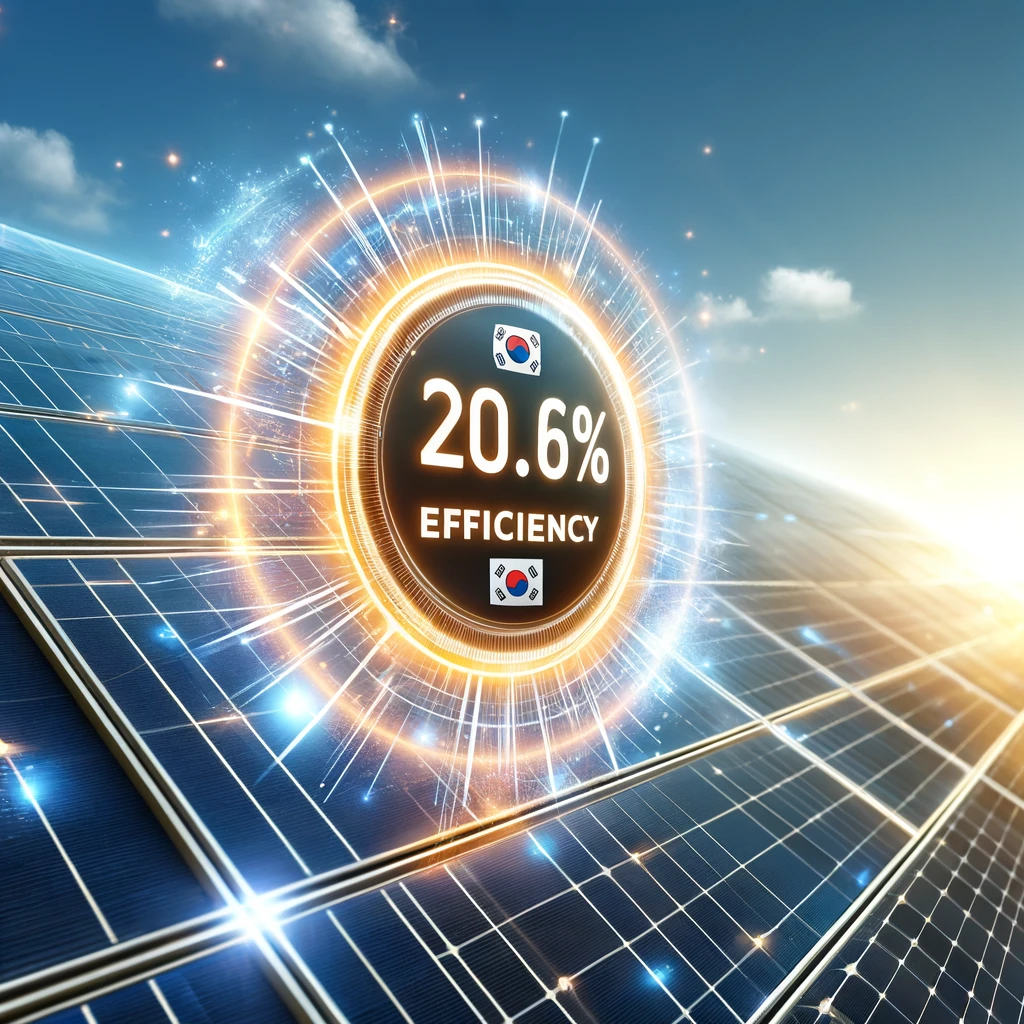Advancements in Solar Technology
The Korea Research Institute of Chemical Technology (KRICT) has achieved a significant milestone by developing a large-area perovskite solar cell with a world record efficiency of 20.6%. This surpasses the previous highest efficiency of 19.2% set by Chinese researchers. This breakthrough promises a bright future for the next generation of solar cells.
Collaborative Efforts Yield Success
KRICT, in collaboration with Unitest, has pioneered this technology, marking a significant leap in solar cell efficiency. The large-area cell, which has received international certification, was validated by Germany’s Fraunhofer Institute and will soon be featured in the National Renewable Energy Laboratory (NREL) efficiency chart. This collaboration highlights the potential of public-private partnerships in advancing renewable energy technologies.
Advantages of Perovskite Solar Cells
Perovskite solar cells are gaining attention due to their superior efficiency compared to traditional silicon cells. However, achieving high efficiency in large-area cells has been a significant challenge. The theoretical efficiency limit for these cells, considering realistic loss pathways, is around 27%. The recent breakthrough by KRICT, achieving over 20%, is a remarkable advancement in this context.
Technical Innovations and Optimization
Achieving this high efficiency required the optimization of various factors such as material synthesis, coating uniformity, and laser process optimization. The successful enhancement of these elements underscores the complexity and precision required in developing high-efficiency solar cells. The team’s approach to material optimization and process refinement has set a new benchmark in the field.
Commercialization and Future Prospects
KRICT and Unitest are now focusing on the commercialization of perovskite solar cells. They aim to establish production facilities for indoor perovskite solar cells within this year. This move is expected to accelerate the deployment of high-efficiency solar cells in the market, contributing to the broader adoption of renewable energy solutions.
Global Impact and Industry Implications

The achievement by KRICT not only sets a new world record but also addresses a critical technical barrier in the commercialization of perovskite solar cells. This breakthrough is expected to catalyze further innovations in the solar industry, encouraging more research and development in high-efficiency renewable energy technologies.
Conclusion
The record-setting efficiency of KRICT’s perovskite solar cells represents a significant advancement in renewable energy technology. This achievement is a testament to the power of innovation and collaboration in overcoming technical challenges. As the world moves towards sustainable energy solutions, such breakthroughs will play a crucial role in shaping the future of global energy production.
Breakthrough in Ophthalmology: FDA Approves Samsung Bioepis’ Biosimilar Ophthalmic Drug
Hi, I’m [jeybee]. As a long-time resident of Seoul, I’m passionate about uncovering the authentic, everyday magic of Korea. This blog is my way of sharing my favorite spots, tips, and cultural insights with you, beyond the usual tourist traps.

